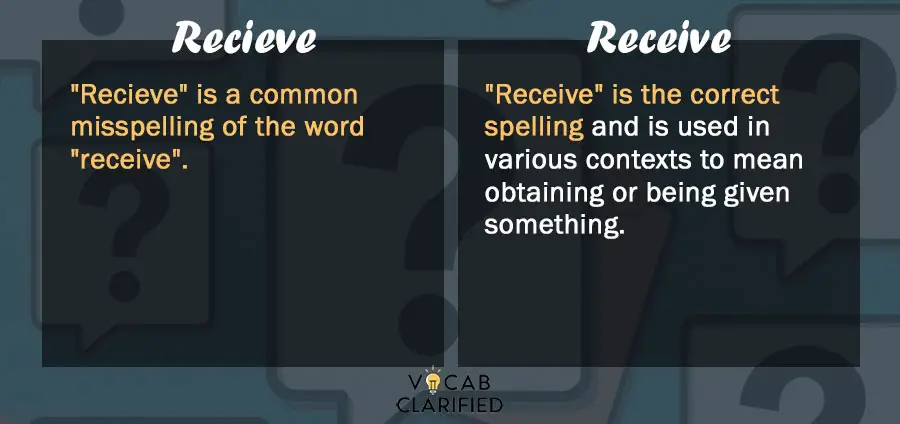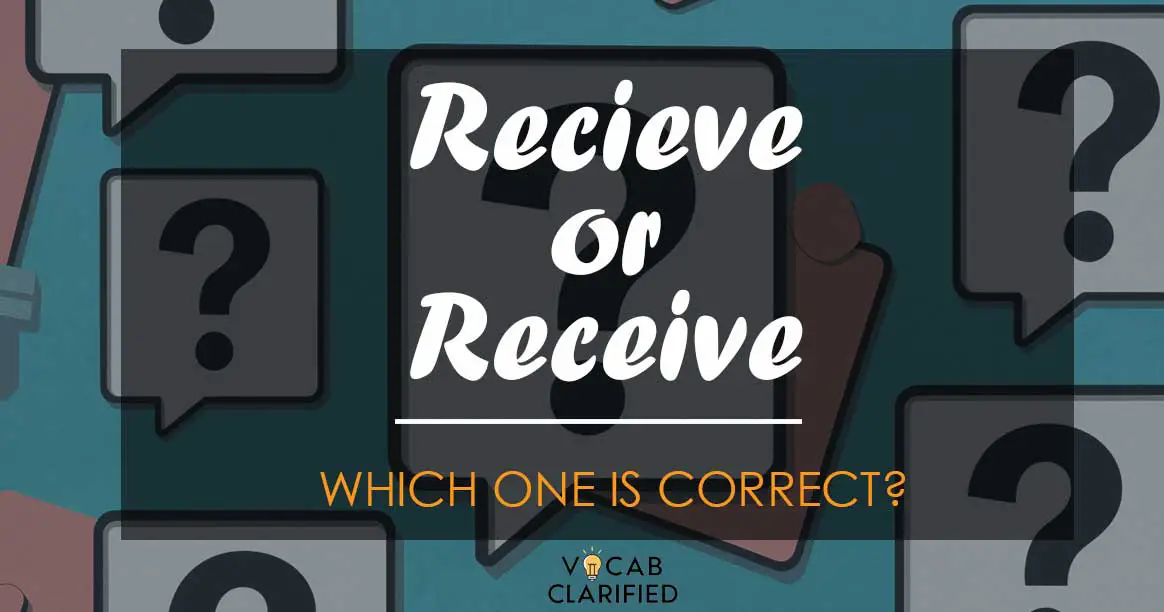Have you ever found yourself typing out an email or a text message and hesitating over whether to use “recieve” or “receive”? If so, you are not alone. This common spelling dilemma trips up many English speakers and writers, leading to confusion and even a few embarrassing moments.
In this article, we will explain whether you should use “recieve” or “receive,” guiding you to a clearer understanding and more confident usage.
Understanding Recieve and Receive
Recieve: Definition and Usage
“Recieve” is a common misspelling of the word “receive.” While it might seem like a small error, using “recieve” can undermine the professionalism of your writing and lead to misunderstandings. It’s important to note that “recieve” is not a correct term in the English language and should be avoided in all forms of writing.
Receive: Definition and Usage
Contrastingly, “receive” is the correct spelling and is used in various contexts to mean obtaining or being given something. For example:
- “I receive numerous emails every day.”
- “She was thrilled to receive the award for her hard work.”

Side-by-Side Comparison
To further clarify the differences and help you decide which to use, here is a side-by-side comparison:
| Aspect | Recieve | Receive |
| Definition | Incorrect spelling | To be given or to obtain something |
| Common Usage | None (should be avoided) | “I receive your messages promptly.” |
| Key Differences | Misspelling | Correct and standard usage |
When deciding between “recieve” and “receive,” always opt for “receive” as it is the correct term.
Ensuring accurate spelling reflects well on your attention to detail and command of the English language.
Everyday Usage Examples
Let’s see some more examples to illustrate how “receive” fits into everyday language:
- Email Correspondence: “Did you receive the attachment I sent earlier?”
- Formal Writing: “The company will receive a tax break for its charitable contributions.”
- Casual Conversation: “I can’t wait to receive my package from the online store.”
Conclusion
Understanding the difference between “recieve” and “receive” is a small yet significant step in mastering English spelling. By consistently using “receive,” you ensure clarity and professionalism in your writing.
Remember, even small errors can impact how your message is perceived. Keep practicing and referring to guides like this one, and soon, the correct usage of “receive” will become second nature. Language mastery comes with attention to detail, and you are already on the right path by seeking to understand and correct common mistakes. Happy writing!

